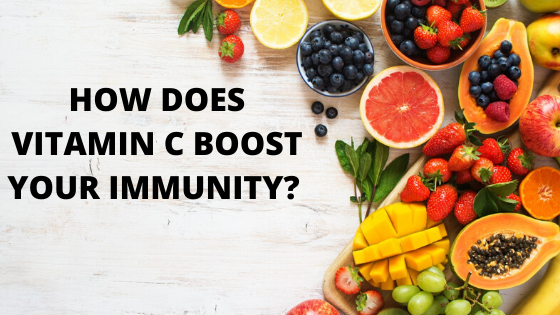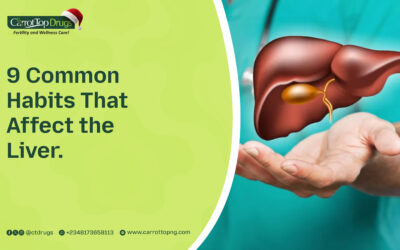Introduction
Vitamin C, also known as ascorbic acid, is a vital nutrient known for its role in boosting the immune system. This powerful antioxidant supports various cellular functions of the immune system, enhances the production and function of white blood cells, and helps the body fend off infections. With its ability to combat oxidative stress and inflammation, vitamin C is an essential component in maintaining a robust immune system. In this article, we will explore how vitamin C boosts immunity, the prevalence of vitamin C deficiency, the sources of this essential nutrient, and its recommended dietary allowances (RDA) for different age groups.
Statistics of People with Vitamin C Deficiency and Illnesses Related to It
Vitamin C deficiency, though rare in developed countries, still affects a significant portion of the global population. According to the World Health Organization (WHO), about 5-10% of adults in the United States have vitamin C deficiency. In certain populations, such as smokers and those with limited access to fresh fruits and vegetables, this percentage is even higher. Vitamin C deficiency can lead to a range of health issues, including scurvy, a disease characterized by fatigue, swollen gums, and bleeding. Additionally, a lack of adequate vitamin C has been linked to weakened immunity, making individuals more susceptible to infections and illnesses.
How Vitamin C Boosts Immunity
1. Enhances White Blood Cell Production
Vitamin C plays a crucial role in stimulating the production of white blood cells, particularly lymphocytes and phagocytes, which help protect the body against infections. By enhancing the function of these immune cells, Vitamin C is essential in ensuring a robust immune response. Understanding how Vitamin C boosts immunity can be critical for maintaining overall health and resilience against diseases.
Moreover, Vitamin C contributes to the production and function of key immune cells by acting as an antioxidant. This helps to protect these cells from damage caused by free radicals, thereby maintaining their efficiency in combating pathogens. The benefits of how Vitamin C boosts immunity extend beyond just the production of white blood cells; it also aids in maintaining their effectiveness.
In addition, how Vitamin C boosts immunity includes supporting the skin’s barrier function. A healthy skin barrier acts as the first line of defense against external threats, including pathogens. By promoting collagen production, Vitamin C helps to fortify this barrier, providing an extra layer of protection for the body’s immune system.
2. Improves White Blood Cell Function
Vitamin C is renowned for its ability to boost the immune system, and one of the primary ways it achieves this is by increasing the production of white blood cells. Not only does vitamin C enhance the number of these crucial immune cells, but it also improves their overall function. By protecting white blood cells from damage caused by free radicals, vitamin C ensures they remain effective in their role of defending the body against infections. This highlights just how vitamin C boosts immunity, making it a vital nutrient for maintaining a robust immune response.
In addition to boosting white blood cell production, vitamin C directly enhances the functionality of these cells. This enhancement occurs because vitamin C shields white blood cells from oxidative stress, a common issue caused by free radicals. The protective effect of vitamin C means that these immune cells can better carry out their duties, thus reinforcing the body’s defense mechanisms. This interplay between vitamin C and white blood cells illustrates precisely how vitamin C boosts immunity, emphasizing its importance in immune health.
Moreover, the role of vitamin C in boosting immunity extends to its ability to support the immune system’s overall efficiency. By preventing oxidative damage and ensuring white blood cells are operating at peak performance, vitamin C plays a crucial role in maintaining effective immune responses. This protective role underscores how vitamin C boosts immunity, making it an essential component of a diet aimed at supporting and enhancing immune function.
3. Supports Skin Barrier
The skin is the body’s first line of defense against pathogens, and understanding how vitamin C boosts immunity is crucial for maintaining its health. By promoting collagen production, vitamin C plays a vital role in strengthening the skin barrier, which is essential for defending against harmful microorganisms. This process ensures that the skin remains resilient and effective in its protective role.
In addition to enhancing collagen production, how vitamin C boosts immunity also involves its antioxidant properties. These properties help neutralize free radicals that can cause oxidative damage to skin cells, thereby supporting overall skin health. By reducing oxidative stress, vitamin C further aids in preserving the integrity of the skin’s defensive mechanisms.
Moreover, how vitamin C boosts immunity extends beyond just the skin. It also supports the immune system by aiding in the production and function of white blood cells. These cells are crucial for detecting and responding to pathogens, ensuring that the body can effectively fight off infections. Thus, incorporating vitamin C into your diet is a proactive step towards enhancing your body’s natural defense systems.
4. Acts as an Antioxidant
Vitamin C is a potent antioxidant that helps protect cells from damage caused by free radicals. Free radicals are unstable molecules that can cause oxidative stress, leading to chronic inflammation and weakening the immune system. Understanding how vitamin C boosts immunity is crucial, as this vitamin plays a significant role in neutralizing these free radicals, thereby reducing inflammation and supporting overall immune function.
By neutralizing free radicals, vitamin C not only helps to prevent cellular damage but also contributes to the enhancement of the immune system. The process of how vitamin C boosts immunity involves the vitamin’s role in supporting various immune cells and improving their ability to fight off infections. This mechanism underscores the importance of maintaining adequate vitamin C levels to bolster your body’s defense mechanisms.
Moreover, how vitamin C boosts immunity extends beyond just reducing oxidative stress. Vitamin C also aids in the production and function of white blood cells, which are essential for fighting off pathogens. This comprehensive role in immune support highlights why vitamin C is vital for maintaining a healthy and resilient immune system.
5. Promotes Apoptosis
Apoptosis is the process of programmed cell death that helps eliminate old, damaged, or infected cells. One crucial way vitamin C boosts immunity is by promoting apoptosis, ensuring that damaged or infected cells are removed efficiently. This mechanism prevents the spread of infections and helps maintain the health of the immune system, making vitamin C an essential nutrient for overall immune defense.
In addition to its role in apoptosis, how vitamin C boosts immunity involves enhancing the functionality of immune cells. Vitamin C supports the production and activity of white blood cells, which are vital for identifying and combating pathogens. By fostering an environment where apoptosis can occur effectively, vitamin C contributes to a robust and responsive immune system.
Overall, understanding how vitamin C boosts immunity highlights its importance in maintaining immune health. By promoting apoptosis and supporting immune cell function, vitamin C ensures that the body remains equipped to handle infections and diseases. Regular intake of this essential nutrient can play a significant role in enhancing immune system efficiency and overall wellness.
6. Enhances Iron Absorption
Vitamin C enhances the absorption of non-heme iron from plant-based foods, which is crucial for maintaining a robust immune system. Iron plays a vital role in the development and function of immune cells, and its deficiency can significantly impair immune response. By improving iron absorption, vitamin C indirectly supports the immune system, illustrating how vitamin C boosts immunity through this essential mechanism.
Moreover, the link between vitamin C and iron absorption underscores the importance of vitamin C in maintaining overall health. When iron from plant-based sources is more efficiently absorbed, the body’s immune cells can function more effectively, enhancing the body’s ability to fight infections. This process highlights how vitamin C boosts immunity by ensuring that iron levels are sufficient for optimal immune function.
In addition to its role in iron absorption, vitamin C has direct effects on the immune system. It acts as an antioxidant, protecting immune cells from damage caused by free radicals. This protective role further demonstrates how vitamin C boosts immunity, emphasizing its importance in both supporting iron absorption and directly enhancing immune cell function.
Sources of Vitamin C
Vitamin C is abundant in a variety of tropical fruits and vegetables. Some of the richest sources include:
– Citrus Fruits: Oranges, lemons, limes, and grapefruits are well-known for their high vitamin C content.
– Berries: Strawberries, blueberries, raspberries, and blackberries are excellent sources of vitamin C.
– Kiwi: This small, green fruit is packed with vitamin C and other beneficial nutrients.
– Mango: Mangoes are not only delicious but also rich in vitamin C.
– Pineapple: This fruit provides a substantial amount of vitamin C.
– Pawpaw
– Guava
– Bell Peppers: Red, yellow, and green bell peppers are excellent sources of vitamin C.
– Tomatoes: Both fresh and cooked tomatoes provide vitamin C.
Role of Vitamin C Supplements
While it is best to obtain vitamin C from dietary sources, supplements can be beneficial, especially for individuals who have difficulty meeting their daily requirements through food alone. Vitamin C supplements are available in various forms, including tablets, capsules, and powders. They are particularly useful for people with increased vitamin C needs, such as smokers, pregnant and breastfeeding women, individuals with certain medical conditions, and those with limited access to fresh fruits and vegetables.
However, it is essential to follow recommended dosages to avoid potential side effects, such as gastrointestinal discomfort and kidney stones. Evergreen Vitamin C is a supplement that can help to prevent vitamin C deficiency.
Recommended Dietary Allowance (RDA) of Vitamin C for All Age Groups
The RDA for vitamin C varies by age, gender, and life stage. The following are the RDAs for different groups:
– Infants (0-6 months): 40 mg/day
– Infants (7-12 months): 50 mg/day
– Children (1-3 years): 15 mg/day
– Children (4-8 years): 25 mg/day
– Children (9-13 years): 45 mg/day
– Adolescents (14-18 years, male): 75 mg/day
– Adolescents (14-18 years, female): 65 mg/day
– Adults (19+ years, male): 90 mg/day
– Adults (19+ years, female): 75 mg/day
– Pregnant women (18 years and younger): 80 mg/day
– Pregnant women (19-50 years): 85 mg/day
– Breastfeeding women (18 years and younger): 115 mg/day
– Breastfeeding women (19-50 years): 120 mg/day
Conclusion
Vitamin C is a vital nutrient that plays a crucial role in boosting the immune system. From enhancing the production and function of white blood cells to acting as a potent antioxidant, vitamin C supports various aspects of immune health. While dietary sources of vitamin C are abundant, supplements can be beneficial for those with increased needs or limited access to fresh produce. By ensuring adequate intake of vitamin C, individuals can strengthen their immune system and reduce the risk of infections and illnesses.
FAQs
- How does vitamin C boost your immunity?
Vitamin C boosts your immunity by enhancing the production and function of white blood cells, supporting skin health, acting as an antioxidant, promoting apoptosis, and improving iron absorption.
- What are the symptoms of vitamin C deficiency?
Symptoms of vitamin C deficiency include fatigue, swollen gums, bleeding gums, joint pain, and a weakened immune system.
- Can I get enough vitamin C from my diet alone?
Yes, it is possible to get enough vitamin C from a balanced diet that includes fruits and vegetables rich in this nutrient. However, supplements can help those with increased needs or limited access to fresh produce.
- What are the best dietary sources of vitamin C?
The best dietary sources of vitamin C include citrus fruits, berries, kiwi, mango, pineapple, papaya, guava, bell peppers, broccoli, and tomatoes.
- Are vitamin C supplements safe?
Vitamin C supplements are generally safe when taken within the recommended dosages. However, excessive intake can lead to side effects such as gastrointestinal discomfort and kidney stones.
- What is the RDA of vitamin C for adults?
The RDA of vitamin C for adult males is 90 mg/day, and for adult females, it is 75 mg/day. Pregnant and breastfeeding women have higher requirements.
- Can vitamin C prevent the common cold?
While vitamin C cannot prevent the common cold, regular intake can reduce the severity and duration of symptoms.
- How does vitamin C help with iron absorption?
Vitamin C enhances the absorption of non-heme iron from plant-based foods, which is essential for the development and function of immune cells.
- Is it possible to overdose on vitamin C?
While vitamin C is water-soluble and excess amounts are excreted in urine, extremely high doses can cause side effects such as diarrhea, nausea, and kidney stone.

















